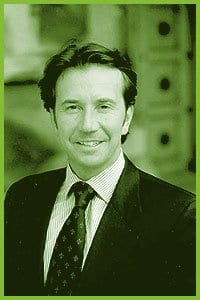The fourth-ever Canadian MP to come out of the closet is a Progressive Conservative from a rural Nova Scotian riding.
Last week Scott Brison, the 35-year-old MP for Kings-Hants in the Annapolis Valley, told The Globe And Mail newspaper he was gay as he launched his bid to lead the federal PC party. Current leader Joe Clark plans to step down in the spring.
“I’ve never tried to hide who I am,” Brison told the Globe. “I’ve lived my life honestly and openly and, perhaps, not flamboyantly. I view sexual orientation a lot like eye colour. I have no insecurities about it, but I don’t view it as a completely defining feature about who I am or what I represent.”
He said he has been in a relationship with a Halifax banker for four years.
On a Parliamentarian scorecard kept by the national queer lobby group Egale Canada, Brison scored an A, based upon his voting record in support of every queer equality issue to come before the House and his response of “yes” to every question on their questionnaire.
“We weren’t surprised,” says John Fisher, executive director of Egale. “Scott has been open to those around him and to the leader, Joe Clark.”
A businessman, Brison was first elected to Parliament in 1997. He gave up his seat to let Clark get into the House Of Commons, then won it back in 2000’s general election. He hasn’t had much of a profile in the party until now.
“He’s not been seen as a front runner for the leadership,” says Bob Drummond, a political scientist at York University. “But almost anyone could emerge as a leader in the course of a campaign.” There are only 14 PCs in the House.
How’s coming out going to affect his odds of replacing Clark?
“It will help him in some quarters and hurt him in others,” says Drummond. “Really, in a party leadership contest, they’ll be looking for other things, like policy.”
Back in 1988, New Democrat MP Svend Robinson was the first MP in Canada to come out, followed by Bloc Québécois member Réal Menard and, last year, Vancouver New Democrat Libby Davies.
The Liberal and Canadian Alliance parties don’t have any openly-gay MPs. The absence in the Alliance, with its rightwing leanings, is understandable. But why the Liberals, with 169 MPs in their caucus, don’t have any out members is a bigger mystery.
“You can take chances in opposition that you can’t take in government,” speculates Drummond. “But I wouldn’t have thought this was one of them. With Svend Robinson, he was popular in his riding [when he came out], so there was less risk. You’d think there’d be somebody in the Liberal caucus in the same situation.”
Fisher, who says he knows there are queer Liberals, says it might have something to do with the family feuding inside the party.
“When people are engaged in power politics, one could feel that one’s sexual orientation could be a negative factor,” says Fisher. “For Scott, putting it in the public domain will make it easier for him during the campaign.”


 Why you can trust Xtra
Why you can trust Xtra


